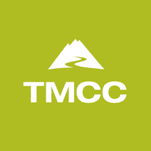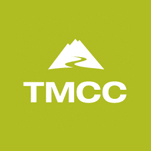
Silver State Opportunity Grant
About the Program
The Silver State Opportunity Grant Program (SSOG Program) is Nevada’s first and only state-supported financial aid program created by the 2015 Legislature pursuant to Senate Bill 227 (Chapter 387, Statutes of Nevada 2015). Under the SSOG Program, need based grants will be awarded to eligible low income students who are college-ready to pay for a portion of the cost of education at a community college or state college within the Nevada System of Higher Education (NSHE). This unique program is built on a shared responsibility model and guided by a philosophy for awarding grant aid based on the total cost of attendance (tuition and fees, books and supplies, room and board, and other living expenses) being shared by partners (the state, federal government, family, and the student).
Students from low-income families are a growing share of K-12 and higher education enrollments in Nevada, and their success in higher education is important, not only to the individual student and the public higher education institutions, but also to the State as a whole. It will not be possible to reach the college attainment goals necessary for a healthy state economy without the success of Nevada’s low-income students. The SSOG program is an aggressive first step by Nevada to encourage more low-income students to attend college full time and ultimately earn a degree or credential of value.
Eligible institutions include the NSHE community colleges and state university:
To be eligible for an SSOG award, a student must:
Be enrolled in a program of study leading to a degree or certificate;
Enroll in at least 12 credit hours that apply to the student’s chosen program of study
Be college ready based on placement or completion of entry-level, college-level mathematics and English*
Be classified as a resident for tuition purposes
Meet institutional Title IV financial aid satisfactory academic progress requirements
Complete the Free Application for Federal Student Aid (FAFSA) and have a Student Aid Index (SAI) of 8500 or less. If you are prohibited by law from completing the FAFSA, contact the financial aid office at the institution you plan to attend.
Have not previously earned a bachelor’s degree.
*To be considered “college-ready” for the purpose of SSOG Program eligibility, a student must be 1) currently or previously enrolled in a 100 or above level mathematics and English course, 2) placed into a college-level course under institutional placement policies for placement into at least Math 120 and English 101, including corequisite courses, or 3) previously successfully completed remedial coursework (evident by a C or better in Math 096 and/or English 098).
Completion of the FAFSA (or an alternate application as provided by the instiuttion) is a critical step toward receiving an SSOG award. Funds for the SSOG program are limited and are awarded to students enrolled in 15 credits with the most financial need first. Financial need is based on the Student Aid Index (SAI), which is determined through completion of the FAFSA. Successively within each tier (students in at least 15 credits would be awarded first, followed by students in less than 15 credits and in their final semester of enrollment prior to graduation, then any other students in 12 or more credits), funds are awarded to eligible students in ascending SAI order, starting with -1500 up to 8500 SAI, until funds are exhausted. By requiring FAFSA completion for eligibility, the program allows the State to leverage federal aid to the greatest extent possible.
The SSOG program is modeled on a shared responsibility philosophy for awarding grant aid where the award is based on the total cost of attendance (tuition and fees and living expenses) being shared by partners (the state, federal government, family, and the student). The shared responsibility model is based on best practices and described in detail in a report published by the Western Interstate Commission on Higher Education, titled States in the Driver’s Seat: Leveraging State Aid to Align Policies and Promote Access, Success, and Affordability.
The SSOG award amount is calculated by subtracting from the total cost of attendance the student contribution; student aid index (determined from completion of the FAFSA or alternate application provided by the institution); and federal awards received (including the Pell Grant, the Federal Supplemental Educational Opportunity Grant (FSEOG), and the federal TEACH grant). The amount remaining, up to $5,500 annually, is the SSOG award amount. Awards for students in less than 15 credits per semester are prorated. The maximum annual award for students in 12 credits for each of two semesters is $4,400.
The total cost of attendance varies by student living circumstance (living off campus, living on campus [GBC or NSC only], or living with parent). It is calculated by the institutions based on a federal methodology provided for in 20 U.S.C. § 1087 II. For the purpose of the SSOG award calculation, a single cost of attendance based on the average of all eligible institutions is used for each housing category.
2025-2026 Total Cost of Attendance* for Purpose of the SSOG Program
| All Students | $29,408 |
*Based on the average of COA amounts for the eligible institutions.
As the principal beneficiary, the student is expected to contribute toward his/her own education costs. Based on the expectation of a reasonable work commitment (15 hours of employment throughout the year less estimated federal income tax), the student contribution is set at $5,500. The reasonable work commitment is used solely for the purpose of determining the student share under the SSOG calculation and should in no way be construed as requiring a student to seek or obtain employment as a condition of eligibility for the SSOG award.
The student share may be covered by a number of other sources, including but not limited to: student earnings or savings; private, institutional, state or federal scholarships (including the Governor Guinn Millennium Scholarship); veterans’ education benefits; student loans; and financial assistance from family or friends.
Students who receive an SSOG award remain eligible for future semesters providing they continue to meet Title IV Financial Aid Satisfactory Academic Progress requirements. However, SSOG awards are made according to program requirements on an annual basis, and maintaining eligibility is not a guarantee of receiving an SSOG award in future years.
SSOG recipients who wish to receive an award in subsequent years are encouraged to file their FAFSA (or an alternate application as provided by the institution) and complete all additional requirements as early as possible every subsequent year of enrollment.
Students who receive an SSOG award and fail to maintain Satisfactory Academic Progress lose eligibility for future semesters; however, these students may appeal with the financial aid office at their institution and, if their appeal is approved, will be eligible for continued SSOG funding. Alternately, students may regain eligibility for SSOG funding in future semesters by regaining Financial Aid Satisfactory Academic Progress.
Regaining eligibility, however, is not a guarantee of receiving an SSOG award in future semesters.













